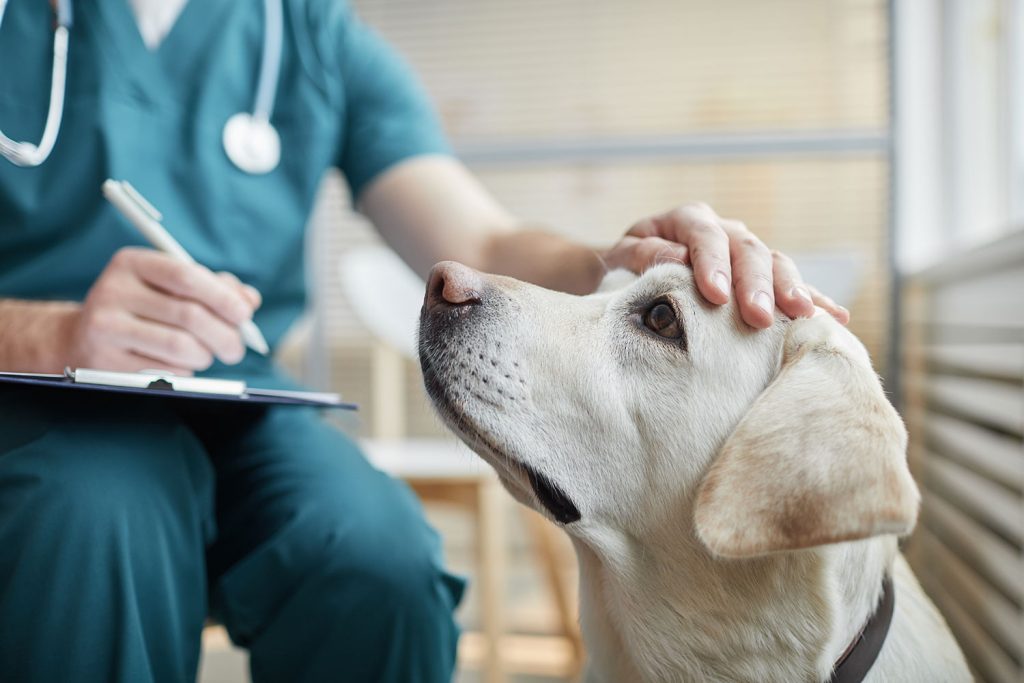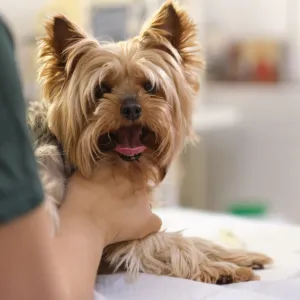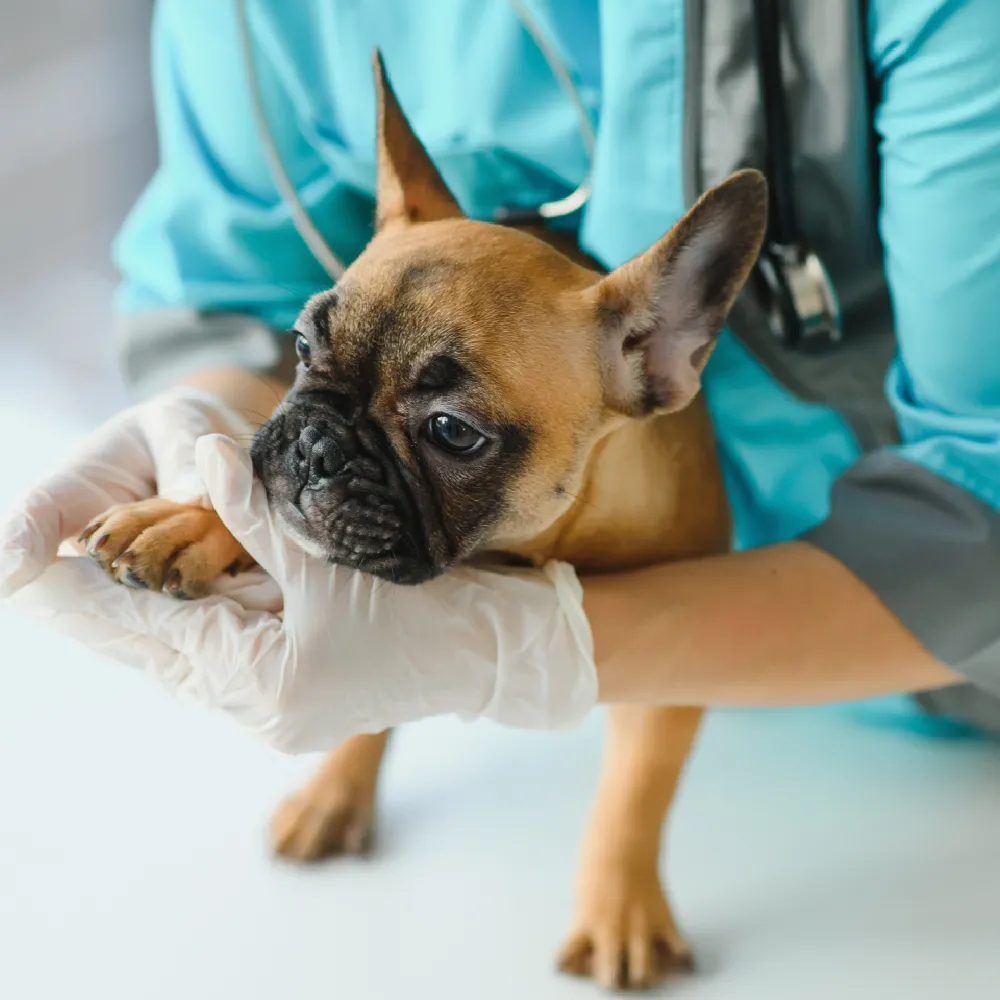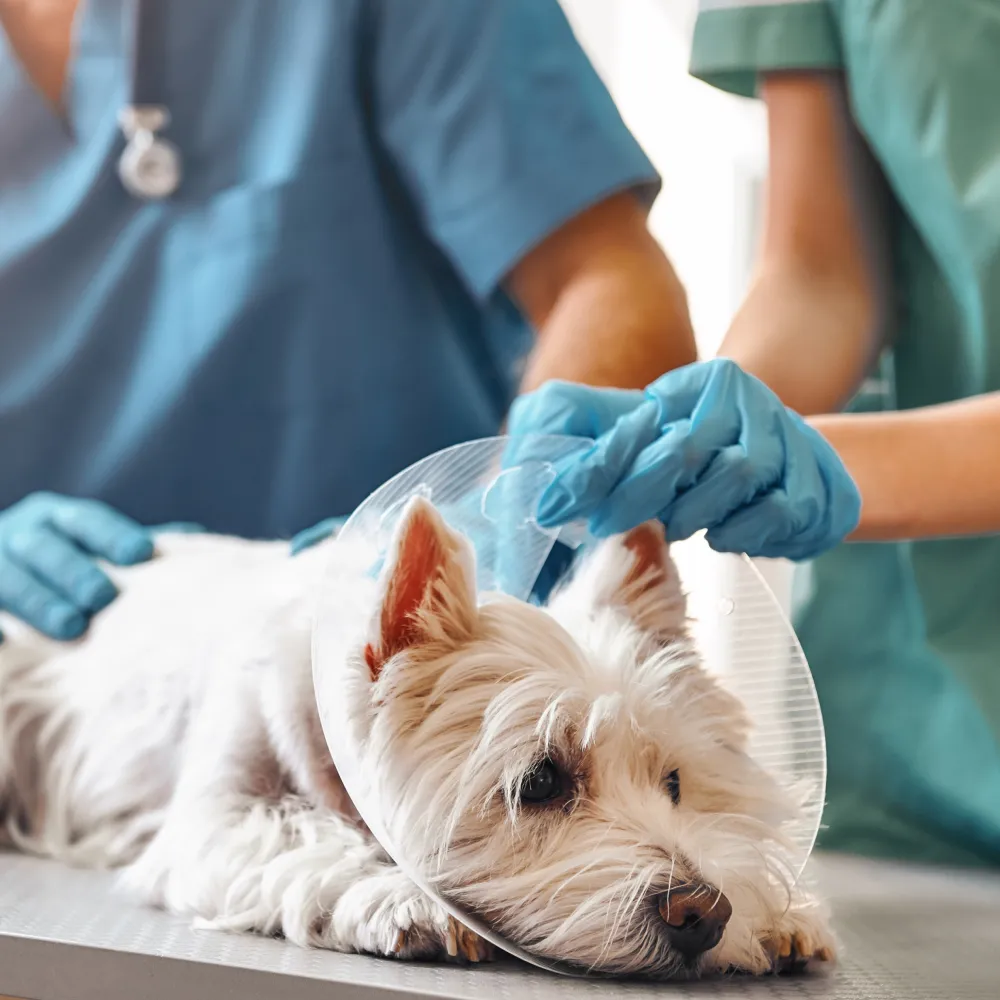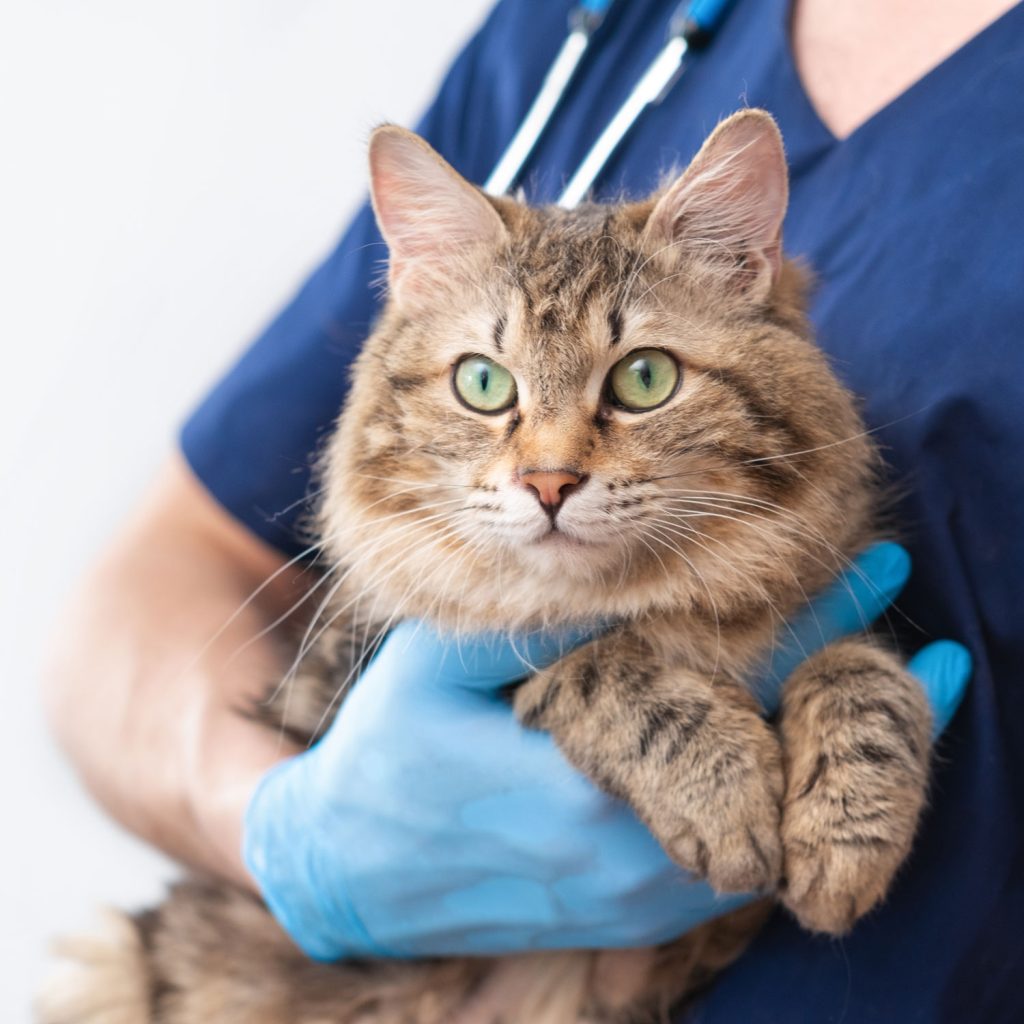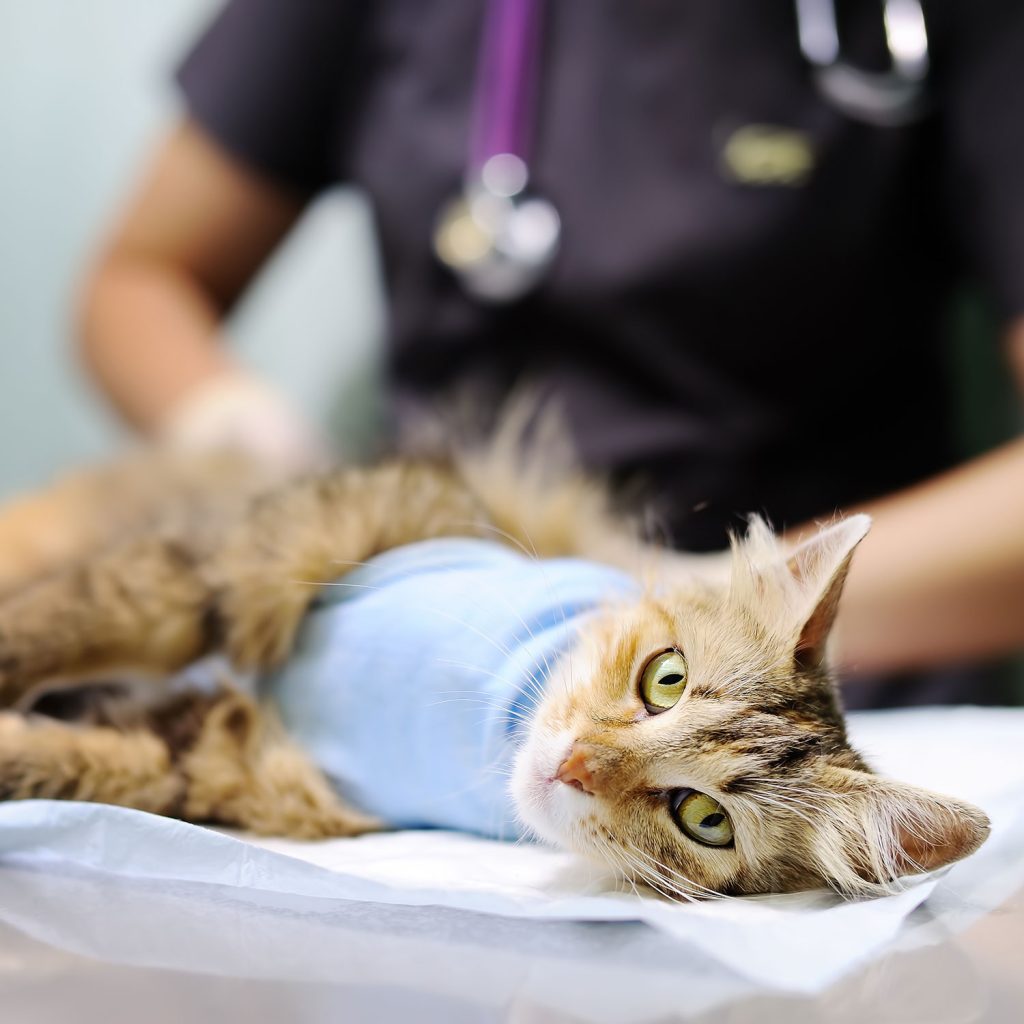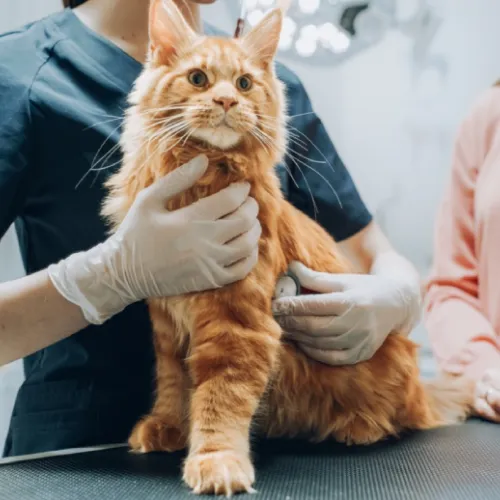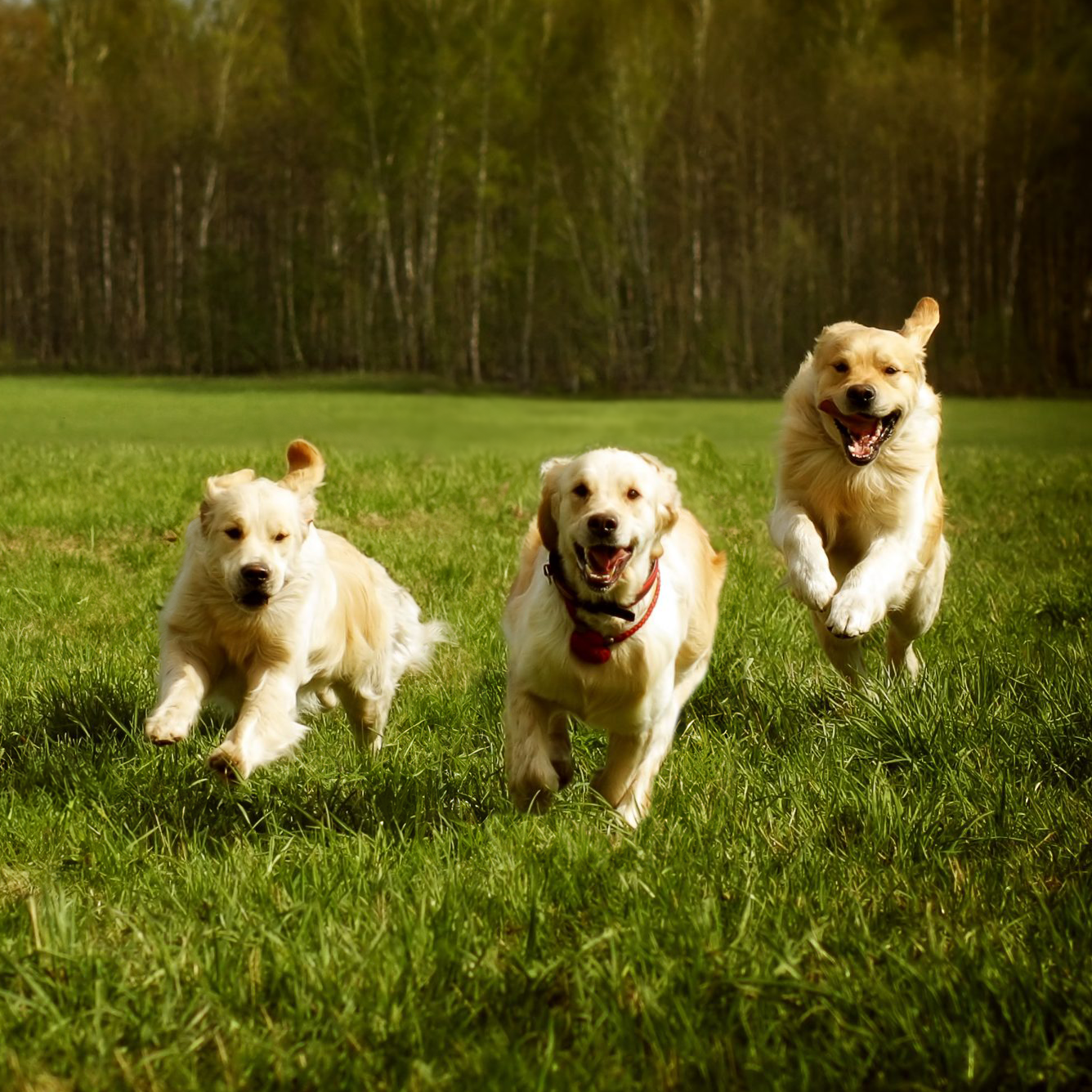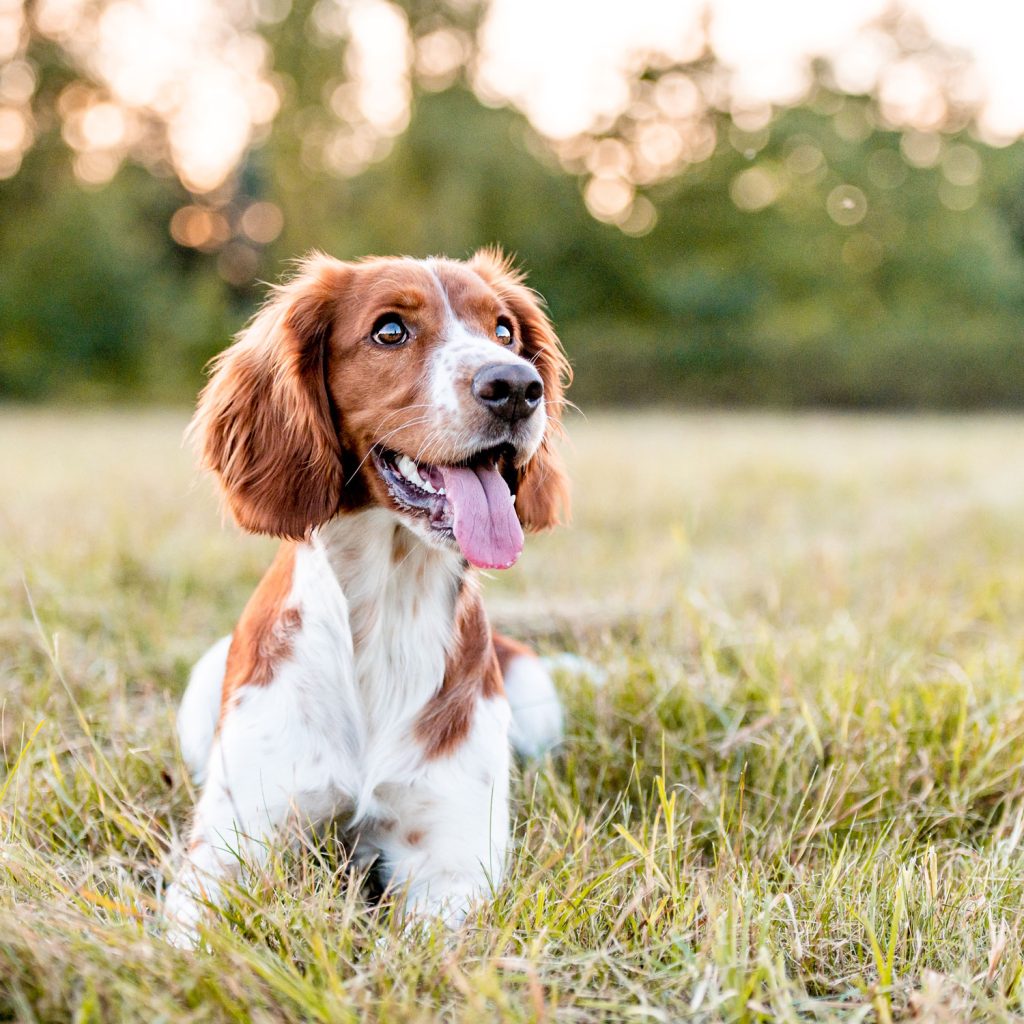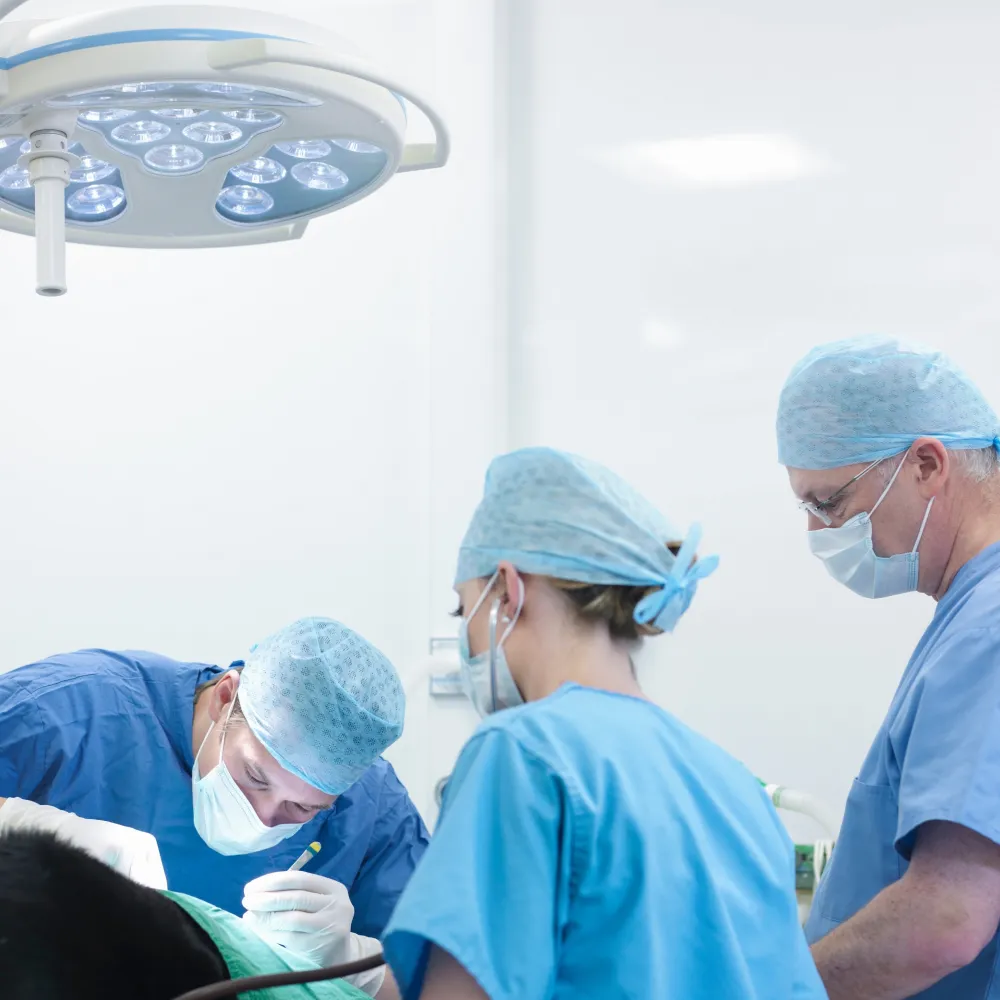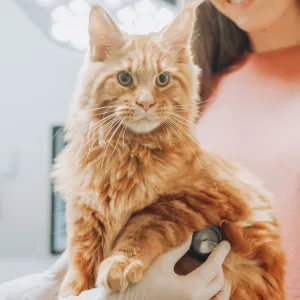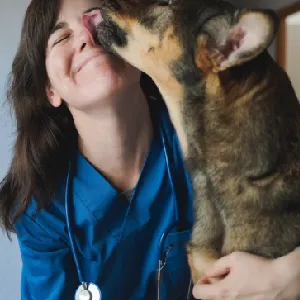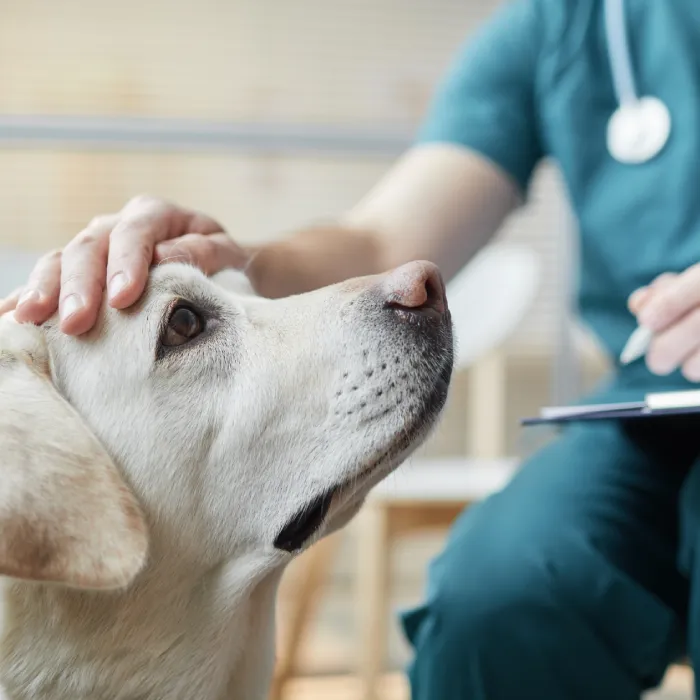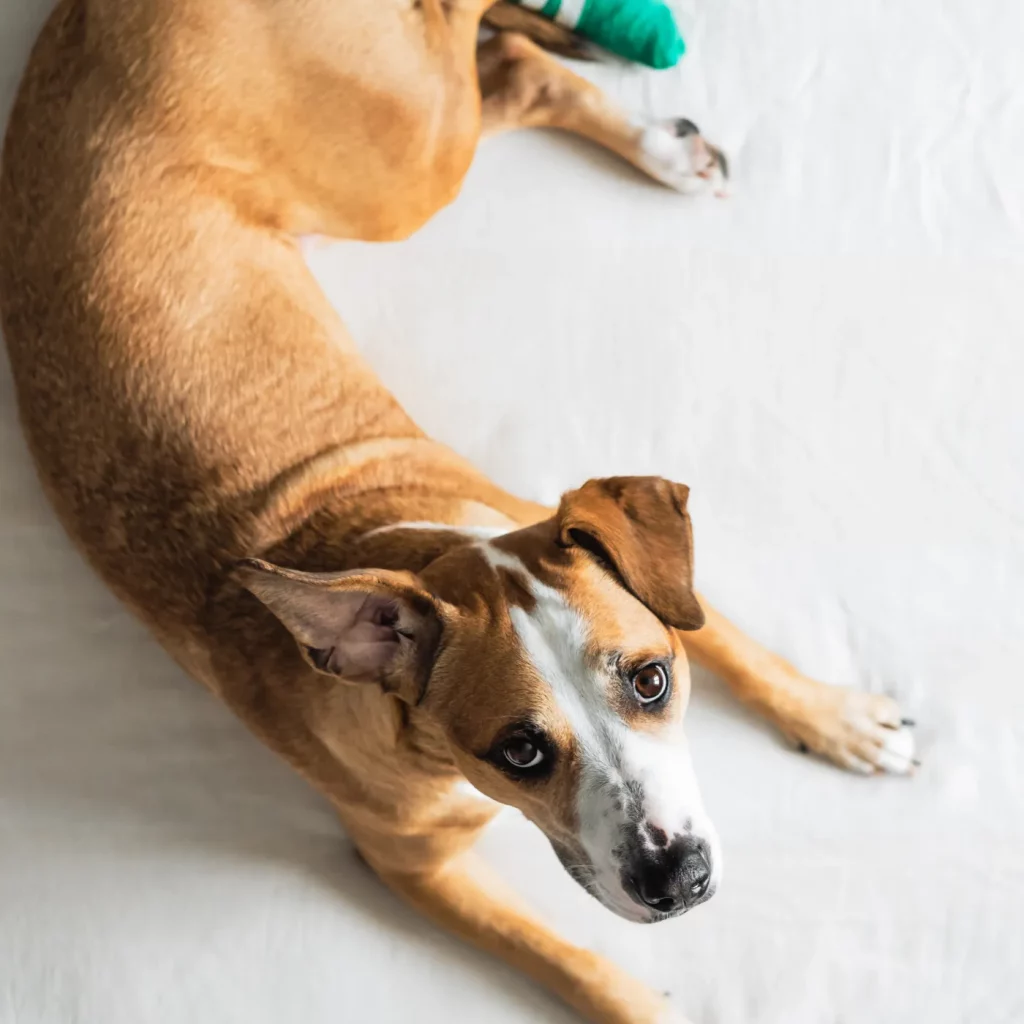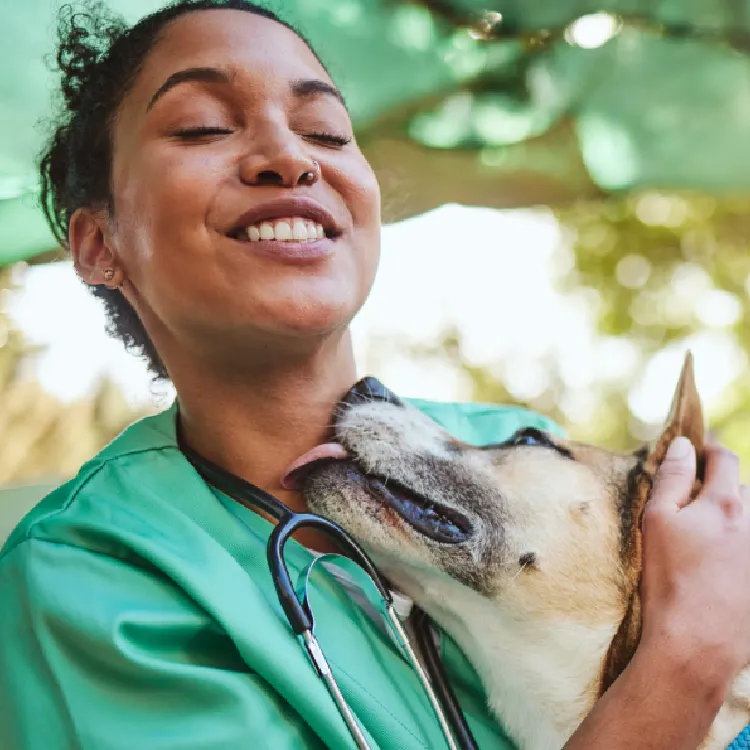Your pet is in safe hands
As the most advanced veterinary orthopedic hospital in Texas, VROC guarantees optimal results for your pet’s surgery and long-term mobility. We offer comprehensive surgical options to repair or replace joints, maximizing your pet’s quality of life with cutting-edge techniques and clinical expertise.
We’re on a mission
Choose VROC for specialized orthopedic and spine care, focusing on your pet’s health and mobility. With advanced technology and expert surgeons, we ensure superior outcomes in a streamlined, state-of-the-art hospital. Learn more about our mission to provide unparalleled surgical care to dogs and cats in Central Texas.
All you need to know
Frequently asked questions
Our board-certified surgeons address a wide range of musculoskeletal issues, including fractures, joint disorders like hip dysplasia or cruciate ligament tears, spinal injuries, and congenital abnormalities. Their extensive training ensures your pet receives expert care tailored to their specific needs.
A board-certified veterinary surgeon is a specialist who has completed extensive additional training beyond veterinary school to become an expert in surgical care. This includes:
- A minimum of a 1-year internship
- A 3-year surgical residency accredited by the American College of Veterinary Surgeons (ACVS)
- Performing a high number of complex surgical cases to meet strict caseload requirements
- Conducting and publishing scientific research
- Passing a rigorous board examination
Once they meet these requirements, they earn the title Diplomate of the American College of Veterinary Surgeons (DACVS). This distinction ensures that your pet is receiving care from a surgeon who has undergone years of specialized training and is operating at the highest level of veterinary surgical expertise.
If your pet is limping, showing signs of pain during movement, has suffered an injury, or isn’t responding to standard treatments for musculoskeletal issues, your primary veterinarian may recommend a consultation with an orthopedic specialist. Early intervention can significantly improve outcomes.
Explore Our Procedures to learn more about common orthopedic issues and the specialized treatments we offer for your pet.
To schedule a consultation, please contact our front desk between 8am and 6pm, Monday through Friday, at 512-778-VROC. Our referral coordinators will assist you in finding a suitable day and time for your pet’s appointment.
A pre-surgical consultation allows our surgeons to establish a doctor-patient relationship, perform a thorough examination, and discuss all potential treatment options. This approach ensures that we tailor our care to your pet’s unique condition and needs.
We will send you a pre-consultation questionairre to get a full picture of your pets needs. Please bring any relevant medical records, X-rays, or test results from your primary veterinarian. Additionally, provide a list of any medications your pet is currently taking. This information helps our specialists develop a comprehensive understanding of your pet’s health.
See our Visitor Guide for more details.
A consultation at VROC is a comprehensive, one-on-one appointment designed to assess your pet’s condition and discuss the best course of action.
- Duration: Expect the appointment to last 45 to 60 minutes.
- Exam & History Review: Our surgeon will perform a thorough physical examination and review your pet’s medical history, X-rays, or diagnostic images from your primary veterinarian.
- Diagnostics: If needed, additional tests such as X-rays, ultrasound, or blood work may be conducted during the visit to get a clearer picture of your pet’s condition.
- Treatment Plan: Based on the findings, we’ll discuss all treatment options, answer any questions you have, and provide a cost estimate for any recommended procedures.
- Next Steps: If surgery is advised, we’ll create a personalized surgical plan, review what to expect, and go over pre- and post-operative care.
We encourage you to bring any questions or concerns—our goal is to ensure you feel fully informed and confident about your pet’s care.
Diagnosis typically involves a physical examination and may require diagnostic imaging such as X-rays, CT scans, or arthroscopy. Our specialists will recommend the most appropriate tests based on your pet’s specific condition.
Treatment varies depending on the condition and may include surgical procedures, physical rehabilitation, pain management medications, and lifestyle modifications. Our team will work with you to determine the best course of action for your pet.
See Our Procedures to see all the available treatments we offer.
All surgeries carry inherent risks, such as reactions to anesthesia, infection, or complications during recovery. However, the benefits, including improved mobility and quality of life, often outweigh these risks. Our specialists will discuss specific risks and benefits related to your pet’s condition to ensure you make an informed decision.
Recovery times vary based on the procedure but generally involve restricted movement initially, with a gradual return to normal activity over several months. We may recommend physical rehabilitation and schedule follow-up visits to monitor progress, providing detailed post-operative care instructions to support your pet’s healing.
Costs vary depending on the specific procedure, the severity of the condition, and your pet’s size. We will provide a detailed estimate before any treatment begins, encompassing pre-operative tests, surgery, and post-operative care.
Yes, we offer financing options through CareCredit for qualified individuals. Our receptionists can discuss these options with you prior to or at the time of the initial appointment. If you have pet health insurance, we will provide the necessary documentation for you to submit claims.
A referral is not required to see our specialists for a consultation. We do, however, recommend you work with your primary veterinarian to transition care, as this ensures a coordinated approach to your pet’s care. We work closely with referring veterinarians to focus on the specific issues prompting the referral, while your regular veterinarian continues to manage overall health care.
Look for board-certified veterinary surgeons with experience in orthopedic and spinal surgery. Referrals from your primary veterinarian, reviews, and consultations can help you make an informed decision.
Yes, maintaining an appropriate weight and balanced diet can help manage some orthopedic conditions and support recovery after surgery. Your veterinarian may recommend specific dietary adjustments or supplements to aid in your pet’s recovery.
It’s common for pets to have a reduced appetite following surgery. Offering a smaller portion of their regular food or a bland diet like boiled chicken and rice can entice them to eat. Warming the food slightly can also make it more appealing. If your pet refuses to eat for more than 24 hours, please contact us for further guidance.
To prevent licking, which can lead to infection, we recommend using an e-collar or a suitable alternative, such as Lick Sleeve, until the incision has healed. Monitoring your pet closely and keeping them occupied with gentle activities can also help deter this behavior.
Signs of infection include redness, swelling, discharge, a foul odor, or increased pain at the incision site. If you notice any of these symptoms, please contact us promptly for evaluation and appropriate treatment.
Follow-up schedules vary depending on the procedure and your pet’s progress. Typically, we schedule an initial follow-up within 10-14 days post-surgery to assess healing, with additional appointments as necessary to ensure a full recovery.
Many pets benefit from physical therapy after orthopedic surgery to help restore mobility, build strength, and improve overall recovery outcomes. At VROC, we offer on-site rehabilitation services with tailored programs designed to meet your pet’s specific needs. Depending on their condition, this may include underwater treadmill therapy, laser therapy, therapeutic exercises, and manual therapy. Our rehabilitation team will work closely with you to create a customized plan that ensures your pet has the best possible recovery.
At VROC, we specialize exclusively in orthopedic and spinal surgery, meaning your pet is in the hands of board-certified surgeons who perform these procedures daily. Unlike multispecialty hospitals, our streamlined focus allows us to provide expert, highly specialized care without the distractions of other disciplines. We also offer on-site rehabilitation services to ensure your pet receives comprehensive post-surgical care in one location.
We use advanced anesthesia protocols tailored to each pet’s individual needs to ensure their safety and comfort. This includes multi-modal pain management, which combines different pain relief methods—such as nerve blocks, anti-inflammatory medications, and post-operative pain control—to keep your pet as comfortable as possible before, during, and after surgery.
At VROC, we value transparency and want pet owners to feel engaged in their pet’s journey through our hospital. We offer designated viewing areas into treatment spaces and our rehabilitation center, allowing you to observe aspects of your pet’s care while ensuring their comfort and safety.
For surgical procedures, maintaining a sterile environment is critical, which means owners cannot be physically present in the operating room. However, we understand that watching over your pet’s care can provide peace of mind. To accommodate this, we have a surgical observation room overlooking our flagship operating suite. For an additional fee, surgeries can be scheduled in this OR, giving you the opportunity to observe the entire procedure from a safe, controlled environment.
If you have specific concerns about staying close to your pet during their time with us, please reach out to our team. We are happy to discuss your needs and find the best way to ensure you feel connected to their care while maintaining the highest standards of safety.
The need for an overnight stay depends on the procedure and your pet’s recovery. Some pets may go home the same day, while others benefit from overnight monitoring and post-surgical care. Our team will discuss your pet’s specific needs during the consultation so you know what to expect when you bring them in for surgery.
Helping your pet recover involves limiting activity, following post-operative care instructions, and ensuring they complete their rehabilitation program. Our team will provide you with a detailed recovery plan and guide you through best practices for ensuring a smooth healing process.
If you notice swelling, excessive redness, discharge from the incision, reluctance to bear weight, or signs of pain, please contact us immediately. Our team is available to guide you on whether your pet needs to be seen urgently or if adjustments to their recovery plan can be made at home.
